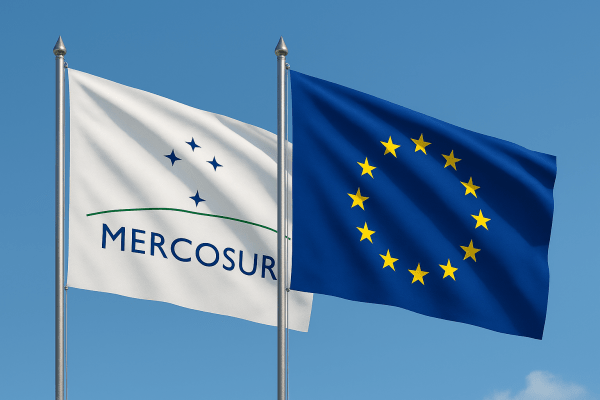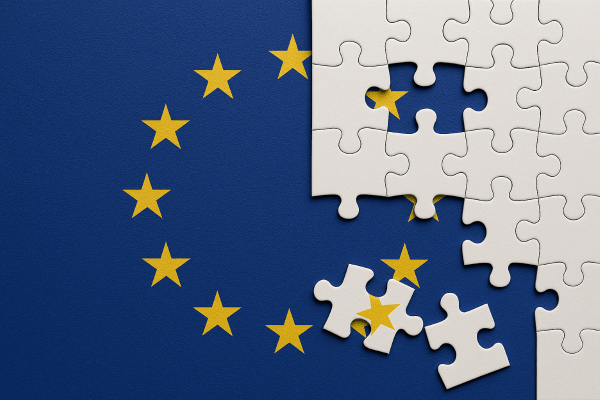A call for a bold reform
Telefónica welcomes the European Commission’s (EC) initiative to progress in the legislative proposal for a DNA. While supporting the EC’s ambition to foster investment, innovation, and competitiveness, Telefónica stresses in its answer to the EC´s call for evidence that only a bold and comprehensive overhaul can address the structural and economic challenges facing the sector.
The current electronic communications framework, while successful in early stages opening markets in the liberalization process, has been failing this decade in delivering a sustainable competition model generating sufficient cash flows to be devoted to even greater massive investments by network operators. As a result, European digital connectivity infrastructure increasingly trail behind other developed economies in availability of state-of-the art while facing mounting global competition and massive investment gaps.
To address this loss of competitiveness, a fundamental reset of the regulatory framework for the digital communications infrastructure and services is required. Simplifying the framework, reducing the regulatory burden and prioritizing speed and agility should be at the top of the Commission’s DNA action plan, and it should be based around the following core principles:
- Competitiveness
- Regulatory simplification
- Fair and balanced relationships on the internet ecosystem
- Harmonization / Completion of the Digital Single Market, allowing the necessary scale for European players.
We believe that the future DNA should establish a radically simplified regulatory environment that offers appropriate incentives for investment and innovation and supports the implementation of the EU’s strategic vision and objectives 2024-2029.
Enabling telecommunication network operators to reach scale is critical to enable sufficient cash flows generation that fosters the significant investment needed to deliver better outcomes for European consumer welfare, ensure that European telecommunication operators remain independent and financially secure, and ensure that technological challenges can be addressed.
The DNA should secure all players in the digital connectivity ecosystem can compete fairly through balanced relationships, where players can reach fair agreements for the services they provide, supported by rules that treat comparable services equally. The scope aims and objectives of the DNA should be significantly broader than those currently set out in the European Electronic Communications Code (EECC), leaving behind a framework conceived for XX Century to effectively address the structural challenges and obstacles faced by the European connectivity sector to ensure a fairer functioning of the internet value chain
Key recommendations
Telefonica has submitted its answer to the EC call for evidence, presenting its considerations regarding the EC’s suggested proposals on DNA. The contribution focuses on several key recommendations:
- Access Regulation: Telefónica supports deregulation of markets, repealing SMP framework and Recommendation of Relevant markets, with markets relying on competition law and GIA. Notwithstanding, in specific markets where competition is not effective, i.e. there is not an active wholesale access product available on a commercial basis that permits competing effectively at retail level, targeted ex-ante obligation on access network operators will be needed. Additionally, Telefonica opposes the imposition of an unnecessary pan-EU harmonized wholesale access product.
- Spectrum Policy: Telefónica supports reforms to ensure timely, and investment-friendly spectrum assignment. This includes longer/indefinite license durations and simplified renewals, cashless tender models, and prioritizing spectrum efficiency over revenue maximization.
- Level Playing Field: Telefónica emphasizes the need to include large Content and Application Providers (CAPs) & Cloud Hyperscalers within the DNA’s scope. In this context, Telefónica proposes binding reciprocal obligations to negotiate IP interconnection/data delivery terms and a dispute resolution mechanism to ensure, when necessary, equitable outcomes. Additionally, Telefonica stresses the need for an EC Recommendation with a non-exhaustive list of services that should be considered specialized services to allow for development of innovative 5G services such as those based on network slicing.
- Regulatory Simplification: Telefónica supports the EC’s goal to reduce reporting obligations by at least 50%, but advocates for deeper simplification across all regulatory areas. This includes eliminating redundant obligations, streamlining permit procedures, and distinguishing between consumers and business as end-users in the DNA.
- Universal Service Obligations (USO): Telefónica argues that the USO is outdated in today’s competitive and well-covered market. Instead, targeted public subsidies (e.g., vouchers) should support vulnerable users, ensuring affordability without imposing unnecessary obligations on providers.
- End-User Protection: Telefónica calls for a shift from prescriptive sector-specific rules to a principles-based approach aligned with robust horizontal consumer protection laws attending those issues more relevant for consumers today.
- Repeal of Obsolete Regulations: Telefónica calls for the repeal of the ePrivacy Directive, and of price controls in outdated roaming & termination rate regulations, and intra-EU calls.
- Security and Cybersecurity: Telefónica supports a unified, coherent approach to security regulation, avoiding overlapping obligations and ensuring consistent implementation across Member States. Any new measures must be subject to thorough impact assessment.
Telefónica acknowledges the considerable efforts made by the services of the European Commission, at every level, in recent years to enable a modern and much-needed Connectivity Regulatory Framework. Our goal is to contribute meaningfully to the process of establishing an optimal legal environment—one capable of reversing the trend toward absolute digital dependence in essential digital infrastructure and services throughout European society.












